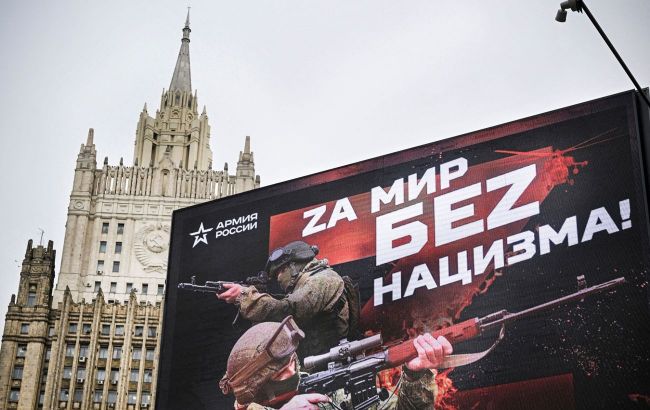Listen to the article
Russian intelligence agencies are conducting sophisticated information-psychological operations targeting vulnerable Russian-speaking communities across the European Union, according to multiple European media sources. These operations mirror recruitment tactics previously used by ISIS between 2013 and 2019, raising concerns about national security and social stability.
Security analysts have identified a clear pattern in these operations. Russian operatives identify marginalized Russian-speaking individuals and groups, then craft tailored narratives—often with religious or nationalist themes—designed to resonate with their specific vulnerabilities. Once engaged, targets are gradually introduced to online communities where exposure to disinformation accelerates their radicalization process.
The economic vulnerability of potential recruits plays a crucial role in the success of these operations. Individuals facing financial hardship are particularly susceptible to recruitment offers that provide monetary compensation for completing assignments. Additionally, those who find the ideological messaging appealing are more likely to be successfully recruited.
“What makes this approach particularly effective is how it combines economic incentives with ideological manipulation,” explains a European security expert who requested anonymity due to the sensitive nature of the topic. “It’s a dual approach that maximizes recruitment success rates.”
Initially, recruits are tasked with relatively simple assignments: gathering basic intelligence about their surroundings, conducting minor acts of sabotage such as setting small fires, collecting and transmitting information about military installations and critical infrastructure, and other seemingly low-risk activities.
Intelligence officials describe this as a “disposable agent” strategy. Rather than investing heavily in developing professional operatives, Russian intelligence services create networks of low-cost, deniable assets operating within EU countries. These individuals can be activated for specific tasks and abandoned if compromised, limiting Russia’s exposure while maximizing disruptive potential.
The primary objective appears to be undermining public trust in national institutions and destabilizing public order across EU member states. By creating persistent, low-level disruption, these operations aim to exacerbate existing social tensions and complicate the work of European security services.
“These operations are designed to remain below the threshold that would trigger a major security response,” notes Dr. Maria Petrova, an expert in information warfare at the Center for European Security Studies. “The cumulative effect of numerous small actions can significantly impact social cohesion and institutional trust over time.”
The consequences of these operations are already becoming apparent. Security officials report increased polarization in targeted communities, amplified protest movements, and growing distrust of government institutions. Additionally, security services are finding their resources stretched thin as they attempt to monitor and counter numerous small-scale threats simultaneously.
In response to these challenges, security specialists recommend several countermeasures. Authorities should strengthen engagement with vulnerable communities, particularly Russian-speaking populations that may feel marginalized. Media literacy programs could help citizens better identify disinformation and propaganda. Law enforcement needs resources to quickly identify and dismantle disinformation hubs, while closer cooperation with social media platforms could accelerate the removal of propaganda content.
The same playbook is being deployed in occupied Ukrainian territories. In the Zaporizhzhia region, Russian administrators are circulating fabricated stories about Ukrainian universities to discourage students from leaving for Ukrainian-controlled areas. This disinformation campaign aims to maintain population control in occupied territories by instilling fear and uncertainty.
Additionally, Russian educational authorities are implementing what they call “lessons of the past” in schools, styled as wartime education modules. Education experts warn these programs serve as vehicles for propaganda and contribute to the militarization of education, potentially creating generational impacts on children’s worldviews.
As these operations continue to evolve, European security officials emphasize the need for coordinated responses across national boundaries, recognizing that information warfare represents a significant challenge to European security in the coming decade.
Verify This Yourself
Use these professional tools to fact-check and investigate claims independently
Reverse Image Search
Check if this image has been used elsewhere or in different contexts
Ask Our AI About This Claim
Get instant answers with web-powered AI analysis
Related Fact-Checks
See what other fact-checkers have said about similar claims
Want More Verification Tools?
Access our full suite of professional disinformation monitoring and investigation tools




7 Comments
This is concerning if true. Using similar tactics as ISIS to radicalize vulnerable groups is highly troubling. I hope more details emerge on the full scope and intent of these alleged Russian operations.
Troubling if true, though not entirely surprising given Russia’s history of information warfare. Thorough investigation is needed to fully understand the scale and impact of these alleged activities.
If confirmed, this represents a troubling convergence of authoritarian tactics. Weaponizing information to sow division and unrest is a serious threat that deserves a strong, coordinated response from security services and civil society.
Well said. Identifying and disrupting these operations before they can take root is crucial. Protecting vulnerable communities must be the top priority.
Adopting ISIS-style propaganda tactics is a worrying escalation. Using disinformation and radicalization against civilians is a dangerous game that threatens social stability. Rigorous fact-checking and transparency are vital to expose these operations.
Targeting financial hardship and ideological resonance to recruit people is a sinister tactic. Economic vulnerability and social isolation can make people more susceptible to extremist narratives. Proper safeguards and support systems are needed.
I agree, the exploitation of vulnerable populations is deeply concerning. Robust counter-messaging and social programs are critical to combat this type of malicious influence.